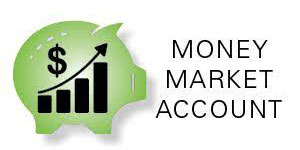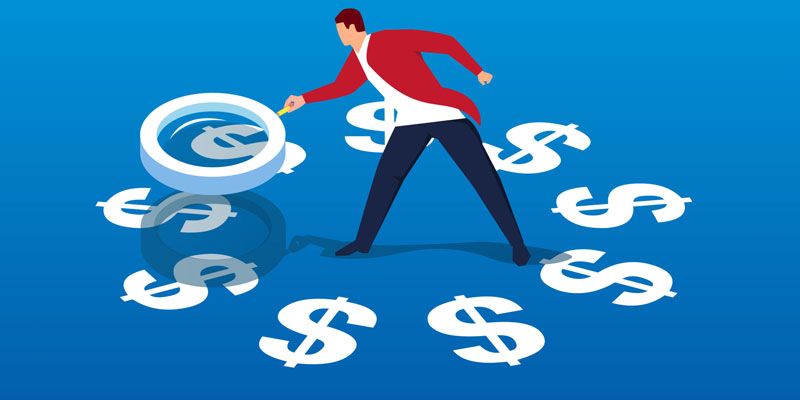Banks are more popularly known for their provision of checking and savings accounts. However, Money Market Accounts (MMAs) are another pivotal product banks and credit unions provide. Money market accounts align more with saving accounts in that they are both used to store away money to use on a rainy day.

Money market accounts, however, offer higher interest rates than typical savings accounts. For instance, if a bank’s savings account provides you with 0.6%, an MMA could provide you with 0.8%.
Money Market Accounts and Savings Accounts: Similarities and Differences
Both accounts are used for parking your money so that you can use it at a future date. Most banks limit the number of times you can withdraw your money to ensure you achieve your goal of saving.

Another important point to note is that MMFs and savings accounts are FDIC insured for up to $250,000. If you intend to save more, you might consider setting up multiple accounts, even with different banks or credit unions, to achieve maximum returns.
An MMF will typically offer an account holder the benefits of having a savings and checking account. Generally, your savings in an MMF are more liquid than in a standard savings account, so you can access your money more flexibly than in a savings account.
Due to this, MMFs are considered more short-term than other alternatives. This leads to another striking difference between an MMA and a savings account; check-writing capabilities. An MMA allows checks to be made against the account, while savings accounts do not have this provision.
Money Market Accounts vs. Money Market Funds

Money market funds (MMFs) differ from MMAs in terms of FDIC insurance. The latter are FDIC-insured, while the former are not. Saving your money in an MMF may earn you more returns than an MMA. MMFs are offered by brokerage companies and are typically low-risk since they invest in short-term investments such as certificates of deposits, cash, and cash equivalents.
Money market accounts trace their history to money market funds. Introduced in the 1980s, close to ten years after the introduction of MMFs, MMAs were created to provide competition to MMFs. While being FDIC-insured may be considered a downside to money market funds, they have the benefit of ensuring they are treated as investment products rather than banking products, meaning they will have higher rates of return.
With the success of MMFs, it soon became clear that banks and credit unions were greatly losing out on this cash cow. MMAs were a timely solution for this financial issue.
When considering which is best for you, between a money market account, money market fund, and savings accounts, consider more options than the return rate. Compare withdrawal fees, the flexibility of withdrawal, and withdrawal limits for all three before deciding what works best for you and your financial needs.
Restrictions on MMAs
The Federal Reserve Board Regulation D requires the withdrawal limit for saving accounts to be six times per month. During the COVID-19 pandemic, this requirement was eliminated to allow individuals to access their money easier. This automatically increased the liquidity of the money invested in such accounts. Check if your bank still has these restrictions, even with the Federal Reserve’s assurance that the restrictions will not be re-imposed.
Another restriction on MMAs is the minimum balance requirement. Savings accounts do not require you to have a set minimum to deposit to the account. Some MMAS require a minimum balance of $1, while others require at least $100.
Selecting the best MMA for your financial needs
Financial institutions such as Zynlo Bank offer money market accounts with interest rates as high as 2.25% against the standard of 0.08%. Very attractive APYs may also mean high minimum balances. Discover Bank’s MMA, for instance, requires a minimum balance of $100,000 for its highest APY of 1.95%.

When considering which MMA is best for you, it is imperative to consider the following aspects:
- Minimum balance requirement
- Monthly account fees
- Balance cap on earning APY (Annual Percentage Yield)
- External transfers – are they available, and if so, are they free and unlimited?
- FDIC-insured for banks and NCUA-insured for credit unions. Of course, but confirm to make sure.
- Do they offer online and mobile banking facilities so you can conveniently access your money anytime?
- Bonuses for qualifying accounts.
- Does it allow for check writing or not?
- Does the financial institution offering you the MMA have convenient and accessible ATMs globally? And does your bank offer debit card services in the first place?
- Is the APY competitive? Do they offer a fixed introductory APY?
Benefits of MMAs
Money market accounts are best for individuals seeking higher interest on their savings over a short period. Further, the fact that FDIC and NCUA will insure your money up to $250,000 provides safety and security for your investment. In that respect, check-writing capabilities, debit cards, and accessibility to ATMs also make MMAs a better option for high-yield savings accounts.
Disadvantages of MMAs
MMAs are regulated by the Federal Reserve, which is good, but it could potentially cause a negative shift in yields. Another demerit is that alternative investment options, such as certificates of deposits, may offer higher APYs. Since banks allow for withdrawals, the restriction to only six may be too confining for some individuals. The minimum balance requirement may also be a hurdle for some.
Are money market accounts a good investment?
Ultimately, this is the main question. MMAs are FDIC-insured (for banks) and NCUA-insured (for credit unions). The Federal Reserve oversees MMAs, which means your account is safe and secure.
Further, money markets are effective accounts for short-term savings and those who want their money to remain liquid. Of course, some investments offer higher returns than money market accounts, but numerous offer fewer returns.
A money market account is ideal for individuals seeking high-interest rates and those needing their money soon.




